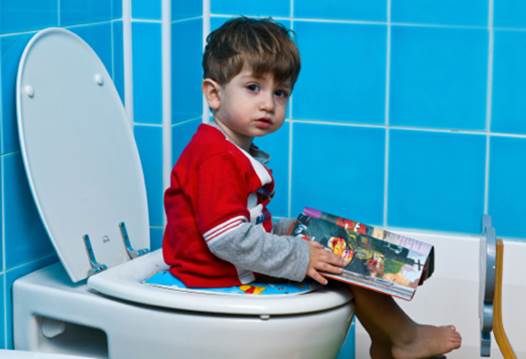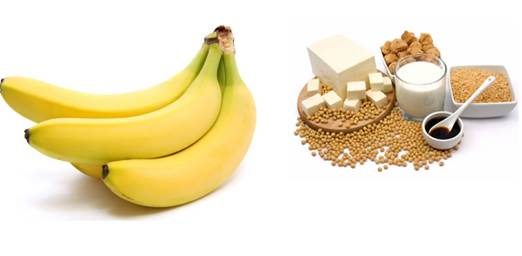When your child is constipated, you can see that he is
irritable, flushed and has hard and small stools, as a result of the lack of
water in his bowel. Constipation can make the child very uncomfortable, but
only by making a few simple changes to your baby's diet can help soften the
stools and ease defecation.

Constipation can
make your baby incredibly uncomfortable
Water
Besides formula or breast milk, experts suggest that adding
2 to 4 ounces of water into the baby's diet when the child is constipated to
help him loosen and pass his stool easier. The colon is responsible for
regulating fluid in the body and a child need enough water to keep fluid in the
intestine to prevent and treat constipation.

A child needs enough
water to keep fluid in the intestine to prevent and treat constipation.
Juice
Because some babies refuse drinking water, give 2 to 4
ounces of juice if your child is still constipated. You can also try mixing the
juice with water to avoid providing too much sugar. Prunes are natural
laxatives, thus providing your baby prune juice will help him pass a hard stool
more easily. Experts noted that pear, plum and peach juices are natural
laxatives, and are good choices for hard foods to help treat constipation.
Avoid acidic citrus fruit such as orange juice for babies less than 12 months
because they can actually cause digestive disturbances or rash.

Plum and peach
juice
Fiber and laxatives
Fiber is the main ingredient while trying to push stools out
of the body, so provide babies with high fiber foods if they are eating solid
foods. Fiber actually helps baby move stools more easily. Barley cereal, pears,
prunes, broccoli, peas, whole grain crackers or breads are great high-fiber
selection for your baby's constipation. The experts also recommended giving
your baby 1 teaspoon of flaxseed oil a day while constipated because it acts as
a natural laxative and helps absorb the vitamins.
Foods to avoid

Avoid bananas,
rice and soy products as well as foods made from white flour
Experts
suggest avoiding bananas, rice and soy products and foods made from white
flour to help stool softer and more easily moved out. Iron-fortified powdered
milk can also contribute to the baby’s constipation, although researches show
that this is not necessarily true. Try changing other parts of the baby's diet
first and then switch to a low iron formula in 2 months - although you should
switch back to formula one with higher iron levels after 2 months to ensure
baby getting enough iron.